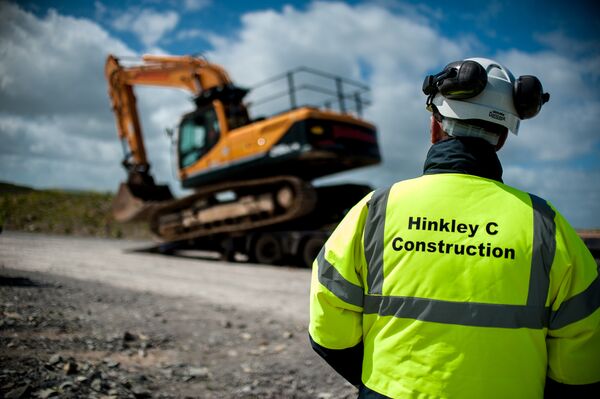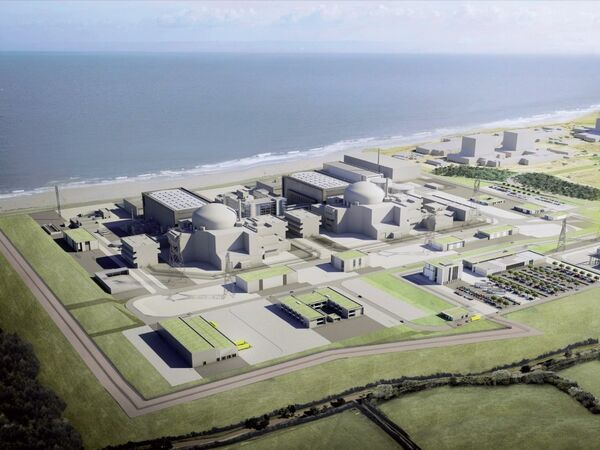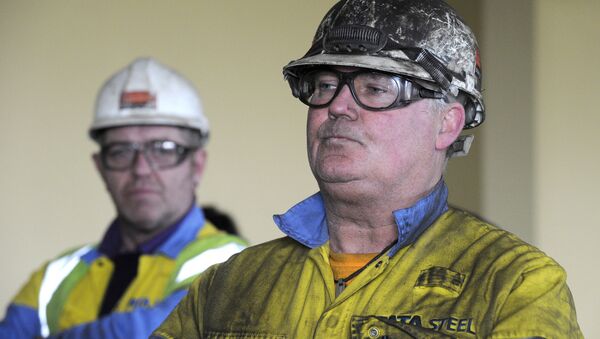Cameron's love-in with China has reached a critical point as industrial giant Tata has said it will dispose of its entire assets in the UK — the British steel industry, which employs 15,000 people and supports thousands more. Tata says it is unable to compete because of the collapse of steel prices, caused by China dumping cheap steel on the market, which has made UK plants unviable.

However, Cameron has brokered a series of high-profile deals with China — including Beijing's financial backing of the proposed new nuclear plant at Hinkley Point in Somerset, in western England. Britain has announced a series of trade deals with China over the past year and is keen to maintain strong relations with Beijing.
However, the strong Sino-British relationship is set to cause severe damage to one of Britain's main manufacturing businesses — affecting thousands of jobs in Port Talbot, Rotherham, Corby and Shotton.
Today I have met with ministers to discuss the future of Port Talbot.
— David Cameron (@David_Cameron) March 31, 2016
Workers and their families face a worrying time, and our priority is to help those likely to be affected.
— David Cameron (@David_Cameron) March 31, 2016
During this process, we are committed to working with the Welsh gov't and Tata on a long term sustainable future for British steel making.
— David Cameron (@David_Cameron) March 31, 2016
Nuclear Dilemma
At the same time, the British Government is struggling to keep its plan to build a new nuclear plant at Hinkley Point, with French energy giant EDF having difficulties financing the project.
China has agreed to finance the building of Britain's new nuclear power station at Hinkley Point in south west England by pumping in a third of the UD$37 billion cost after its original backing was put in doubt.
The UK has struggled to make progress on its new nuclear build program, with delays over the construction of Hinkley Point C power station, which has been beset with technical problems as well as financial doubts.

French energy giant EDF is yet to confirm the financial go-ahead for Hinkley Point C after it was thrown into doubt because of the drop in demand for nuclear power stations following the Fukushima incident in which the Japanese nuclear power stations was hit by a tsunami. This led to France, Germany and Italy all scaling back their nuclear power plans. China has agreed to finance the building of the new Hinkley Point plant by pumping in a third of the US$37 billion cost after its original backing was put in doubt.
Cameron's dilemma now is that he needs to be seen to take action to save thousands of jobs threatened by cheap Chinese imports, while also not straining relations between London and Beijing.
"The government will do everything it can working with the company to try and secure the future of steelmaking in Port Talbot and across our country. It's a vital industry," Cameron said.
However, Cameron's government has continually blocked a provision in the EU — known as the "lesser duty rule" that would allow Brussels to impose anti-dumping tariffs on imported Chinese steel. He now faces a dilemma: save the British steel industry by collaborating with his EU partners in stopping cheap Chinese imports or sacrifice thousands of jobs to save the British nuclear program.
Not an easy choice for a man facing an In-Our referendum on UK membership of the EU on June 23, 2016.


